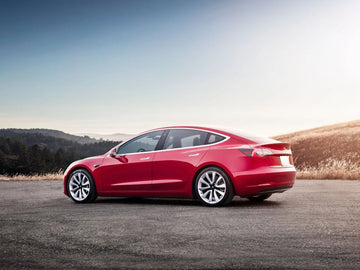Elon Musk's pay package, initially agreed upon in 2018, was one of the most lucrative in corporate history, With a $55.8 billion maximum value and $2.6 billion grant date fair value. The performance-based compensation was tied to Tesla's market capitalization and operational achievements. However, the plaintiff argued that such a massive payday did not serve the interests of all investors.
Judge's Ruling and Reasoning:
In her 201-page opinion, Judge McCormick detailed her rationale for the decision, noting the pay package's size was 250 times larger than the median peer compensation plan and over 33 times larger than Musk's previous plan. She emphasized that the "unfathomable sum" was not reasonable and did not meet the standard of a fair price.
- Shareholder's Perspective: Richard Tornetta, the shareholder who initiated the lawsuit, contended that the pay package was not beneficial to those who had invested in Tesla. Instead, it was perceived as a one-sided benefit for Musk, who claimed the funds would further his mission to save humanity and colonize Mars.
- Tesla's Defense: Tesla executives, including Antonio Gracias, argued that the pay package was in the best interest of shareholders. They believed it ensured Musk's dedication to Tesla's growth and success, framing it as an investment in the company's future.
- Counterarguments from the Plaintiff: Tornetta's attorneys countered by stating that the performance goals set for Musk were easier to achieve than represented and that his focus should be solely on Tesla, not his other ventures. They advocated for a smaller, more reasonable pay package that would still incentivize Musk without being excessive.
Implications for Tesla and Musk:
The ruling has significant implications for both Tesla and its CEO. For Tesla, it raises questions about corporate governance and the balance of power between executives and shareholders. For Musk, it challenges his compensation structure and could influence his future role and commitment to the company.
Conclusion:
The Delaware Court's decision to void Elon Musk's pay package is a watershed moment in the ongoing conversation about executive compensation and shareholder rights. As Tesla moves forward from this ruling, it will need to navigate the complexities of corporate governance and ensure that its compensation practices align with the interests of all stakeholders.
Frequently Asked Questions (FAQ):
-
Why was Elon Musk's pay package considered excessive? The pay package was deemed excessive due to its unprecedented size, which was significantly larger than industry standards and other CEOs' compensation plans.
-
What was the basis of the lawsuit filed by the shareholder? The lawsuit was based on the belief that the pay package was not in the best interest of all shareholders and disproportionately benefited Musk.
-
How did Tesla executives justify the size of the pay package? They argued that the pay package was necessary to ensure Musk's continued dedication to Tesla's growth and success, framing it as an investment in the company's future.
-
What were the plaintiff's main arguments against Tesla's justification? The plaintiff's attorneys claimed that the performance goals were easier to achieve than portrayed and that Musk's focus should be solely on Tesla, advocating for a smaller and more reasonable pay package.
-
What are the potential implications of this ruling for other companies? The ruling could serve as a precedent for future cases, prompting companies to reconsider their executive compensation structures and the role of shareholder input in such decisions.














































